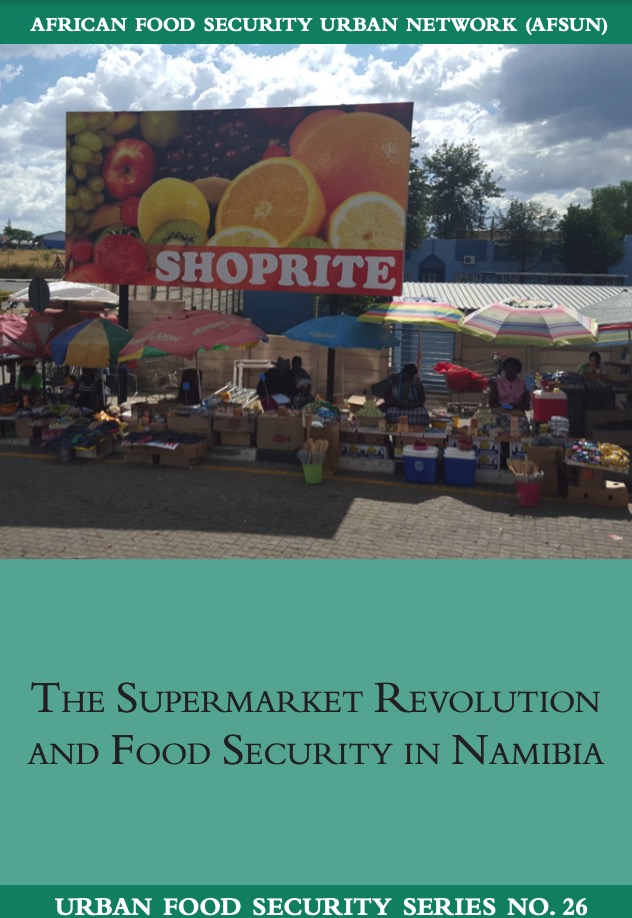BOOK

The Supermarket Revolution and Food Security in Namibia
Authors: Ndeyapo Nickanor, Lawrence Kazembe, Jonathan Crush, Jeremy Wagner
African Food Security Urban Network (AFSUN) and Hungry Cities Partnership (HCP), 2017
After 2000, several scholars argued that Africa was undergoing a supermarket revolution similar to that which had earlier come to dominate food systems and consumer habits in the Global North and Latin America. The revolution would supposedly benefit consumers and small farmers who would be incorporated into new supermarket food supply chains. The proponents of the supermarket revolution model were primarily agricultural economists who viewed it as a largely inevitable and positive development. However, enthusiasm for the model has waned with much less being written about in the last decade. Political economy analysis has been extremely critical of the modernization premises of the model (the idea of inevitable stages or waves in particular) and the fact that the primary beneficiaries are not consumers or smallholders but large, monopolistic South African corporations whose bottom lines are flourishing through corporate expansion into the rest of Africa.
What the 2007-2008 AFSUN survey suggested was that the supermarket revolution model was a potentially accurate depiction of countries in the immediate vicinity of South Africa.
